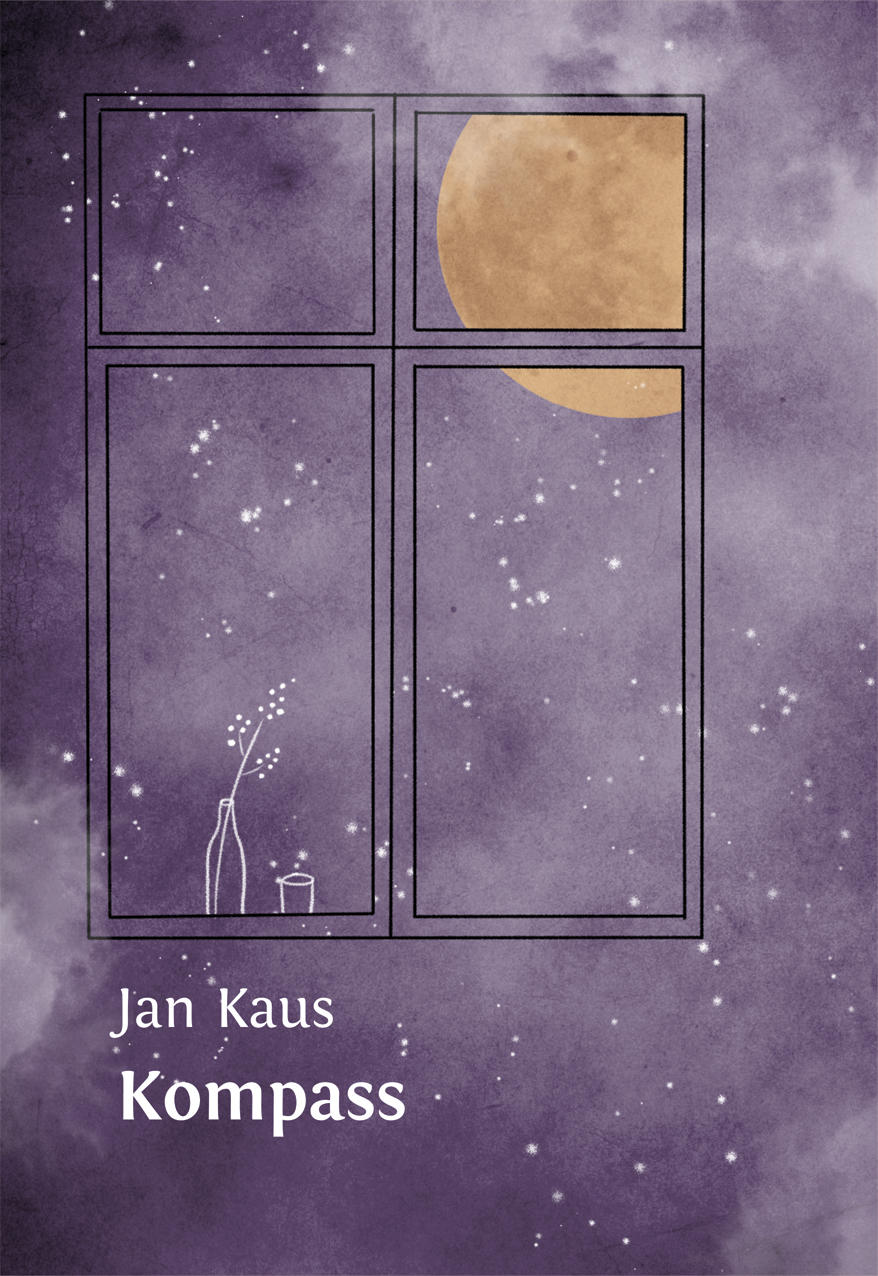Jan Kaus, Kompass. Miniatuurromaan (Compass. A short prose novel)
Hea Lugu, 2017. 111 pp
ISBN 9789949589647
Although Jan Kaus has penned several strong novels (not to mention poetry), his true love appears to lie in the genre of short prose. Compass’s subtitle (or classification) is “a short-prose novel”, and on the back cover one can read that it is “the author’s first attempt to combine the novel’s and short prose’s modes of expression; to tell a story in prose poetry.”
This isn’t the first time Kaus has written in a style that combines the narration and descriptiveness of prose with the density of poetry: his prose-poetry collections Miniatures (Miniatuurid) and Map of Tallinn (Tallinna kaart) were published in 2009 and 2014, respectively.
Just as in Map of Tallinn, the Estonian capital’s streets, squares, parks, and buildings are prominent in Compass: their descriptions are almost topographically exact. At the same time, this newest work additionally features multiple continuous characters and plot lines. Everything is minimalist, but taken as a whole, the short, striking pieces (primarily consisting of just a few lines) form a chain in which one polished, stylistically pure pearl of storytelling comes after another, ultimately forming a single story: a short-prose novel.
In any case, it feels like Kaus has achieved something with Compass. The book is not merely a collection of short prose pieces, nor is it simply a short novel. And to say the work is a poem or a prose poem would likewise be underrating its worth. It is a hybrid genre that operates on several planes, containing the density and tension of poetry, the continuity of a narrative, and also a moral and philosophical dimension. All in all, it is a story about a failed romance and the ensuing, burgeoning chaos in a person’s life.
Doubtless every reader is personally aware of how frail, vulnerable, and disturbingly self-centered such a mental state can make a person; of how thoughts can spin in endless circles, constantly seeking guilt and the guilty party, redemption and freedom, and how instead of finding these things, life can careen into an ever-worsening dead-end from which it can be extremely hard to emerge on one’s own. Kaus conveys these emotions with alarming exactness, all while maintaining a sense of sympathy. The result is something that, for lack of a better word, might be called a song. All the same, it is a psychologically convincing song. Maybe there really is no better way to describe this type of writing than with Kaus’ own preferred term: “prose poetry”.
Peeter Helme (1978) is an Estonian writer and journalist, and anchors Estonian Public Broadcasting’s literary radio programs. Helme has published five novels. The latest, Deep in the West (Sügaval läänes, 2015), is a drama set in the industrial Ruhr Valley.



